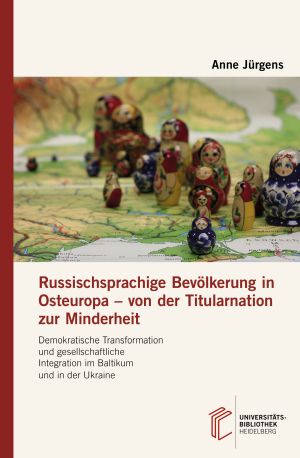
How to Cite
License

This work is licensed under a Creative Commons Attribution-ShareAlike 4.0 International License.
Identifiers
Published
Russischsprachige Bevölkerung in Osteuropa – von der Titularnation zur Minderheit
Demokratische Transformation und gesellschaftliche Integration im Baltikum und in der Ukraine
A large number of Russian-speakers today live in the successor states of the Soviet Union. The contemporary social position of Russian-speakers is a result of their role in the democratic transition process and is based upon the desicion-making of new political elites. Despite neither having a strong homogeneity nor acting as a political or social cohort, the group is often perceived as a minority, hence partly placed in disadvantage both juridically and socioeconomically. The aim of this study is to address this problem by comparison of the development in the Baltic States, specifically in Estonia, and in Ukraine. Additionally, the crisis in Ukraine in 2014 is exemplified as an excursus.


